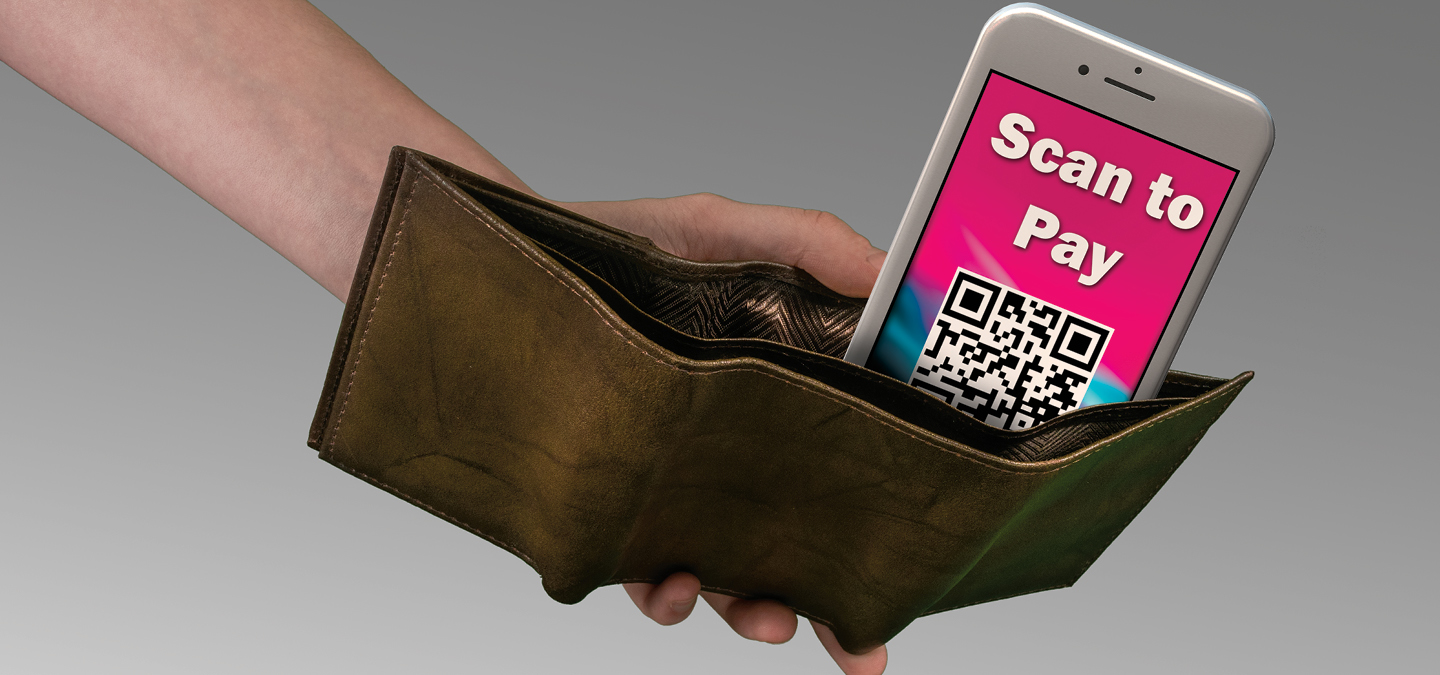During lunchtime in New York City, the line at salad chain Sweetgreen stretches out the door. It moves quickly, though. Instead of opening up their wallets, counting out their money, and waiting for change, customers just swipe an app on their phones. They can’t pay with cash even if they want to because Sweetgreen no longer accepts it.
“It took some getting used to, but I don’t mind now,” says Lori McGuire, a 22-year-old student. “The line moves much faster, and I’m in and out quicker.”
Cash is rapidly going the way of the horse-drawn carriage and the typewriter, as people and companies turn to apps and other digital types of payment to conduct business. That Uber you take home after soccer practice? No wallet necessary. Amazon’s new bookstores? Apps or plastic only, please. Even Walmart, the world’s largest retailer, is trying to push its customers to embrace digital payments at its stores. And there are entire countries moving toward going cashless—an idea that would have seemed unthinkable 10 years ago. But the trend is sparking debate among economists and privacy advocates.
“The conversion to [a cashless] economy will take time, and it’s not going to be simple,” says Bhaskar Chakravorti, an economist at Tufts University in Massachusetts.
During lunchtime in New York City, the line at salad chain Sweetgreen stretches out the door. But it moves quickly. No one is opening up their wallets, counting out their money, or waiting for change. Instead, customers just swipe an app on their phones. They can’t pay with cash even if they want to because Sweetgreen no longer accepts it.
“It took some getting used to, but I don’t mind now,” says Lori McGuire, a 22-year-old student. “The line moves much faster, and I’m in and out quicker.”
Cash is rapidly going the way of the horse-drawn carriage and the typewriter. More people and companies are using apps and other digital types of payment to conduct business. That Uber you take home after soccer practice? No wallet necessary. Amazon’s new bookstores? Apps or plastic only, please. Even Walmart, the world’s largest retailer, is trying to push its customers to embrace digital payments at its stores. And there are entire countries moving toward going cashless. This idea would have seemed unthinkable 10 years ago. But the trend is sparking debate among economists and privacy advocates.
“The conversion to [a cashless] economy will take time, and it’s not going to be simple,” says Bhaskar Chakravorti, an economist at Tufts University in Massachusetts.

